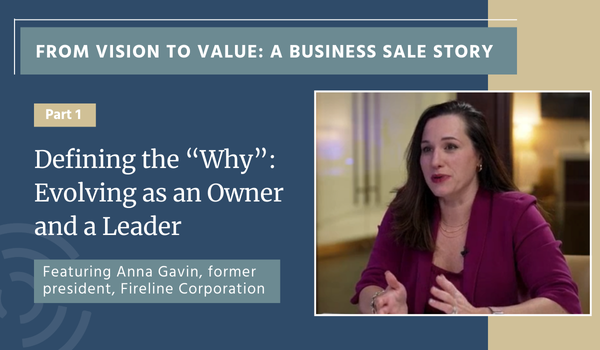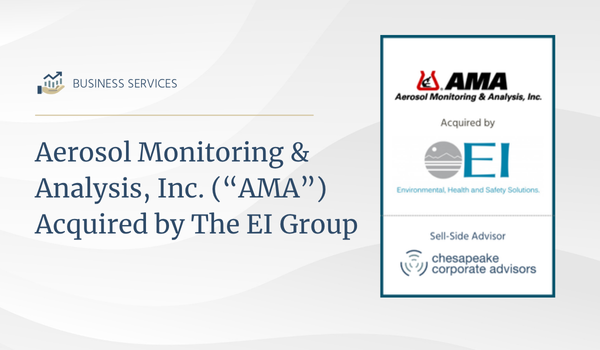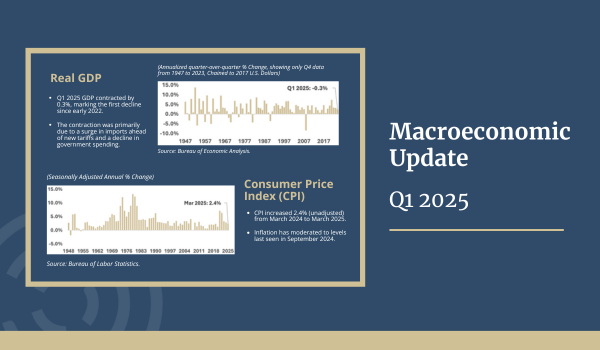This article was originally published on August 9, 2024 on the I-95 Business website.
The government contracting sector has grown rapidly in recent years, and that trend might have you thinking about selling your government contracting business. If you go out to market, your most likely buyer will be a private equity (PE) group. In fact, in our recent government contracting engagements, eight of 10 interested buyers were PE investors.
Government contracting offers a compelling mix of advantages and opportunities that PE groups find appealing. By understanding the factors that draw PE groups to this sector, you can make an informed decision about the best pathway to success for your company.
Low Risk, High-Visibility Revenue Streams
PE groups seek businesses with a reliable revenue stream that reduces their risk, and government contracting companies fit the bill. Most government contracts are immune to the volatility of macroeconomic cycles; instead, revenues tend to be steady and predictable, driven by long-term contracts that are renewed like clockwork.
PE groups also like that they typically have good visibility into the quality of a government contracting business’s revenue and earnings, which gives them confidence they can structure a deal that yields a high ROI. For investors that plan to finance a portion of the deal with debt, a government contracting business with visible, low-risk revenue also paves an easier path to securing financing.
Stable Contract Base and Long-Term Cash Profile
The nature of your government contracts will influence how appealing a PE investor finds your business. For example, they usually favor full and open contracts over set-asides that could limit growth. However, regulatory changes now allow some buyers to invest in emerging businesses and still maintain the entity’s small company status for some period, enabling the business to continue competing for set-aside contracts.
The stability and long-term nature of government contracts tends to result in steady, predictable cash flows — another factor that PE groups find attractive. A solid long-term cash flow profile enables investors to make informed decisions that drive higher returns, such as rolling out a new product, investing in innovative technology or making a strategic hire.
Low Capital-Expenditure Requirements
Many of the highest growth areas of government contracting — including software and professional services — do not require significant capital investment. With manageable working capital requirements, the PE investor can grow the business without maintaining an asset-heavy balance sheet or funding constant upgrades. On the other hand, low capital-expenditure businesses tend to be labor dependent. If a government contractor struggles to attract and maintain talent (a challenge in the current labor market), that might offset some advantages of a strong working capital position.
Federal Budget Stability and Growth
Federal budgets tend to be stable, with spending actually on the rise in areas like cyber and intelligence. Even amidst the typical volatility of an election year, government contracting businesses that specialize in intelligence, cybersecurity or mission-critical services — or provide other offerings essential to national security — will prove attractive to PE investors.
Add-On Growth Opportunities
Once a PE group establishes a platform of companies in a sector, they look for opportunities to “bolt on” similar businesses to drive aggressive growth. That makes lower middle-market government contractors desirable targets, assuming they meet all the criteria a PE group considers important. By adding such companies to an existing platform, PE investors can scale the business quickly and reap the rewards of a higher multiple when they sell the company.
Technology Innovation
PE investors are drawn to government contractors that employ trending technologies like machine learning, artificial intelligence, cloud computing, big data and cyber warfare. If your business is not already leveraging these innovative technologies, it could be a good long-term strategy to invest in them. Though it might mean acquiring an emerging player to gain entry, such a move could set you up to secure a better deal when you eventually sell the business.
For reasons like these, you might find PE investors knocking on your door and trying to convince you to sell. While that might sound like an easy path to success, a single-buyer sale process never favors the seller; it shifts all the leverage to the buyer. Given how attractive your sector is to PE investors, if you engage in a competitive sale process you will likely have multiple interested buyers, and that typically translates to a better deal. An investment banking firm with deep experience selling government contracting businesses can guide you through the process, ensure you avoid common mistakes when selling your business, and help you achieve the best deal price, structure and terms.
About Chesapeake Corporate Advisors
Chesapeake Corporate Advisors is a boutique investment banking and corporate advisory firm providing strategic advisory services (value creation) and investment banking services (value realization) to companies with revenues between $10 million and $200 million.





